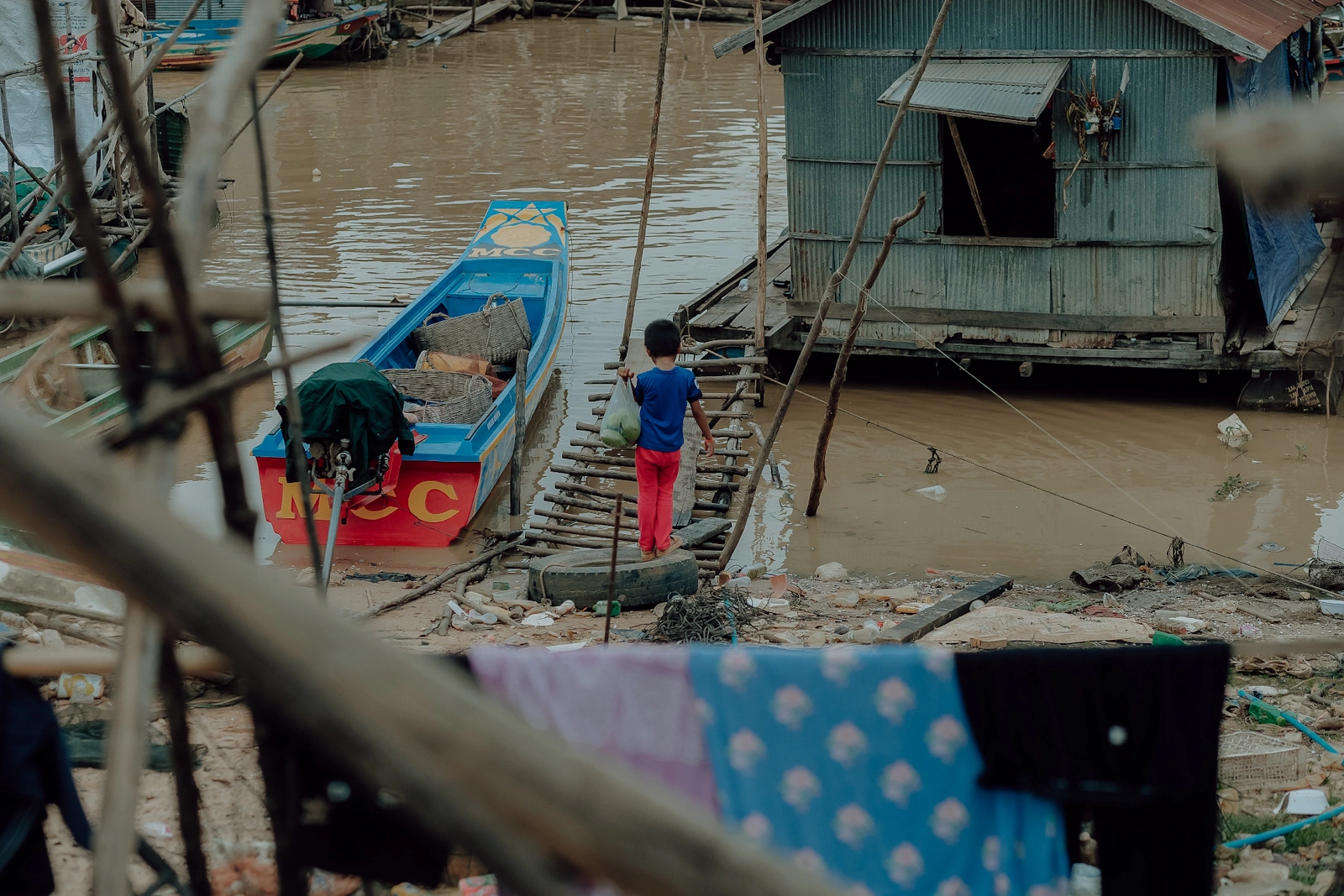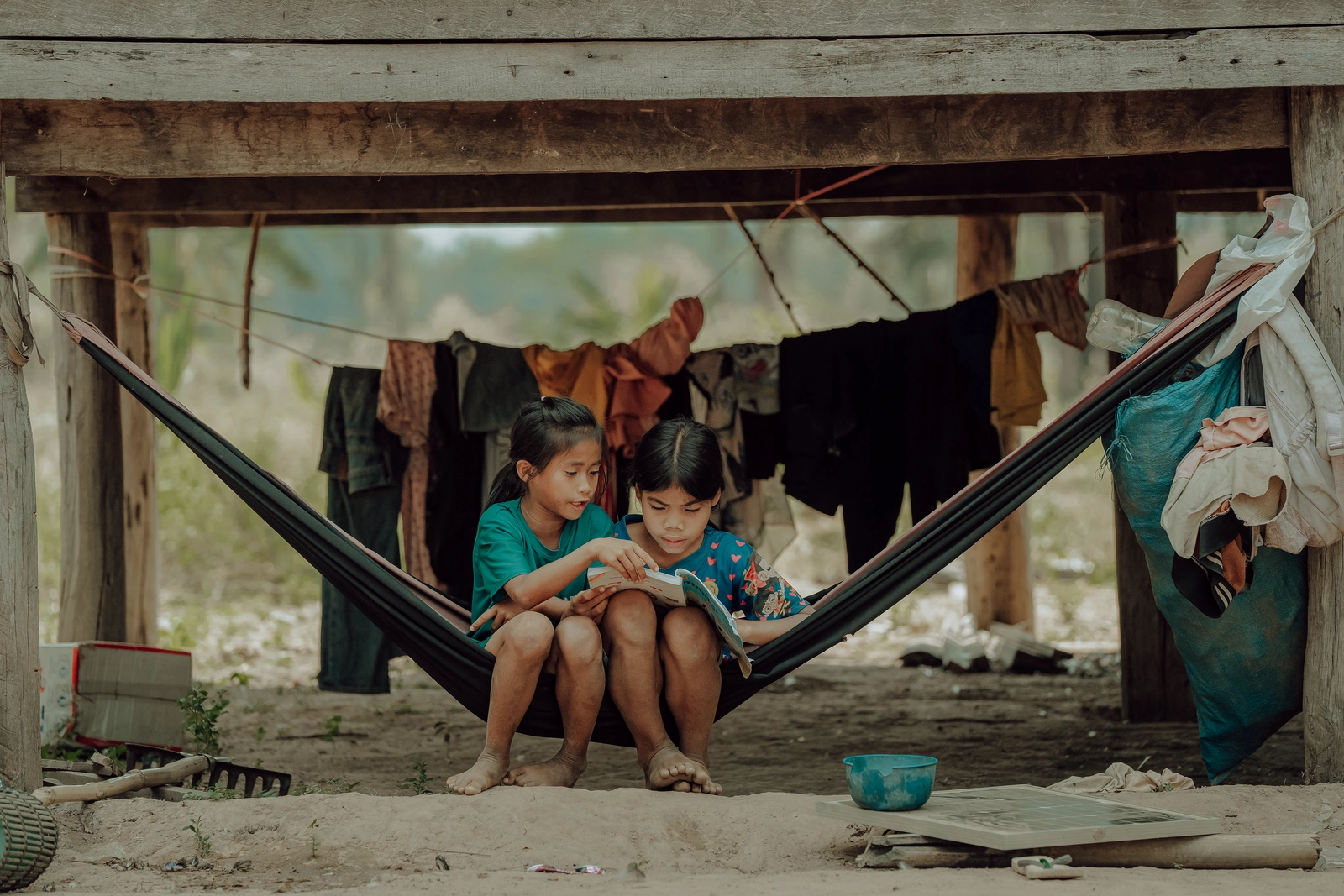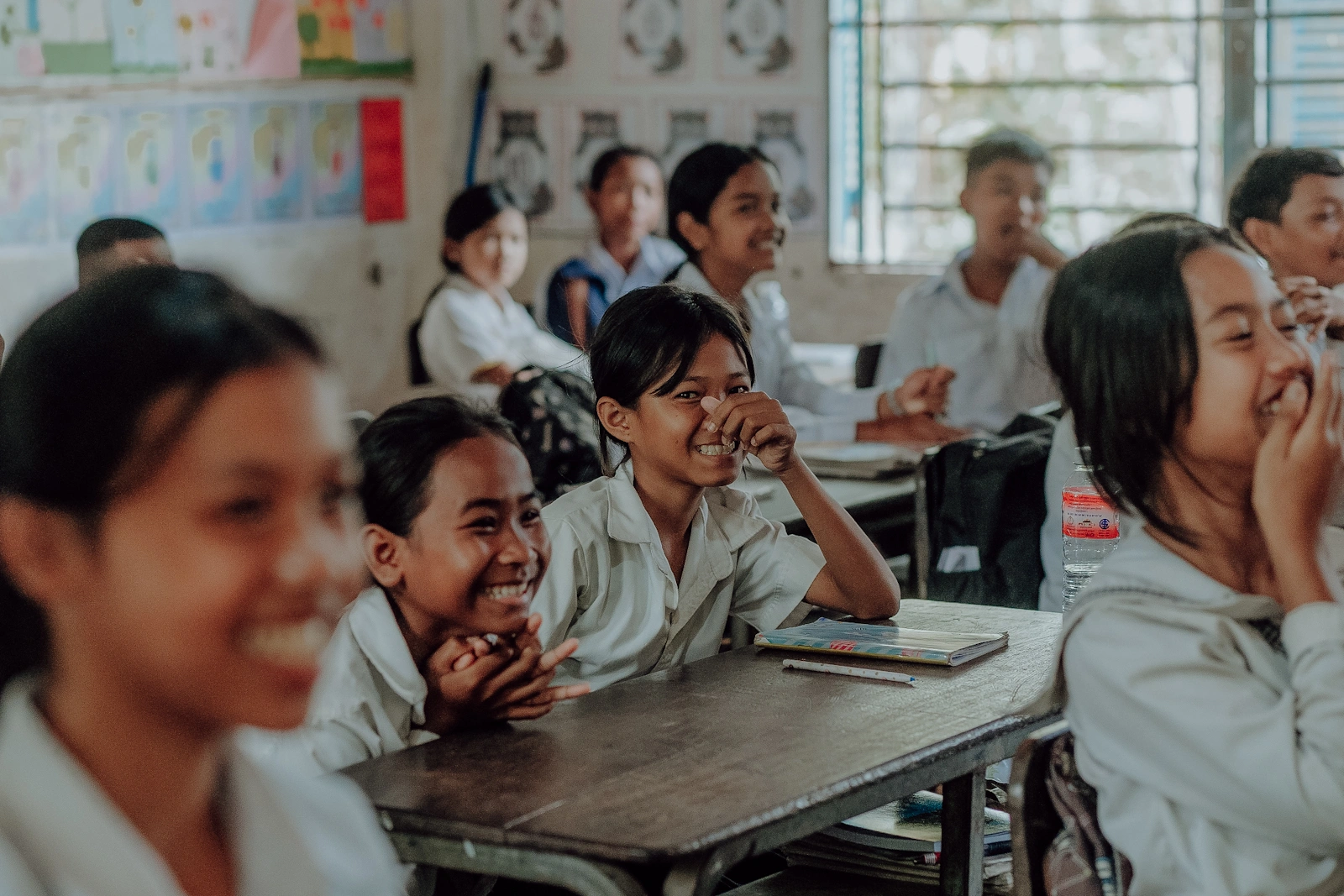It has not rained across Cambodia for over 5 months now.
The dry season has caused many waterholes and smaller rivers to dry up, and April is particularly hot—a real challenge for both nature and people. While this is part of the normal cycle between the rainy and dry seasons, it is especially the poorer communities who suffer the most during these extreme conditions.
We would like to share the story of a region that is particularly affected by this seasonal change.
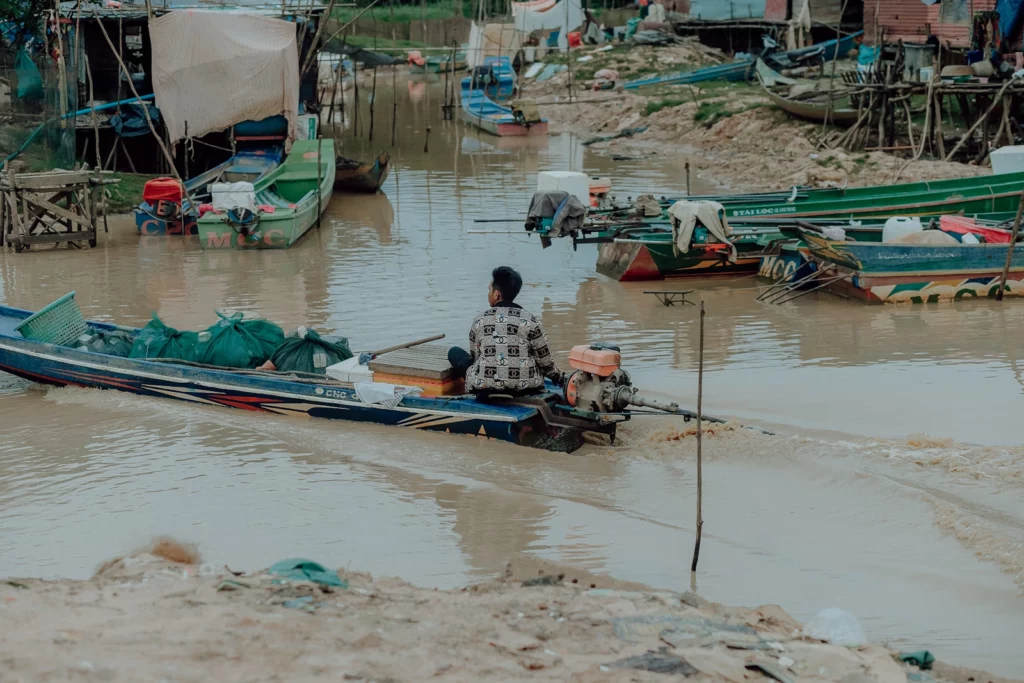
South of Siem Reap lies a large inland lake that serves as a vital source of livelihood for many people: the Tonlé Sap. Its size can expand five to six times between the dry and rainy seasons. Many families live in floating houses, known as Floating Villages.
The lake provides the primary source of food for thousands of people. Unfortunately, fish stocks are steadily declining. In two reports (Saving Tonlé Sap & Challenges of a Fisherman), the lake, its seasonal changes, and the challenges faced by local communities are illustrated in detail.
As a result, more and more families are moving their floating homes closer to the mainland in search of work.
In one of these villages, our team works. The community is considered particularly impoverished, and many families face extreme hardships. Other organizations have reported that, in some cases, children are sold into sexual exploitation. The root causes are widespread poverty, lack of education, insufficient protection, and the demand for child sex exploitation.
It is important to note that this does not affect all families. However, in areas of extreme poverty, unfortunately, these and many other forms of exploitation and human rights violations are more likely to occur.
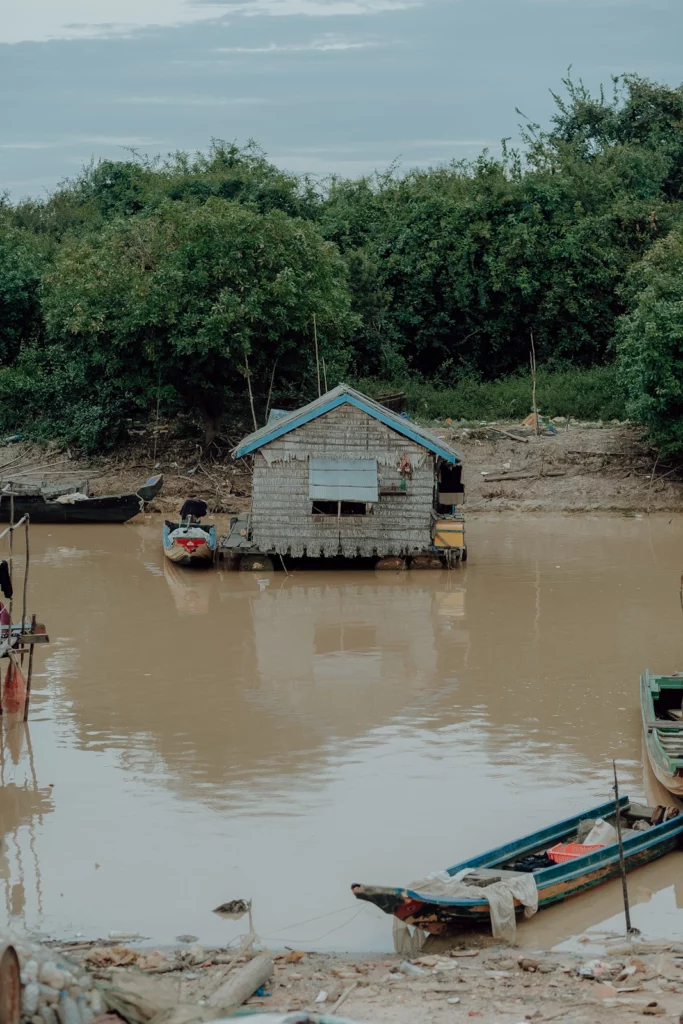
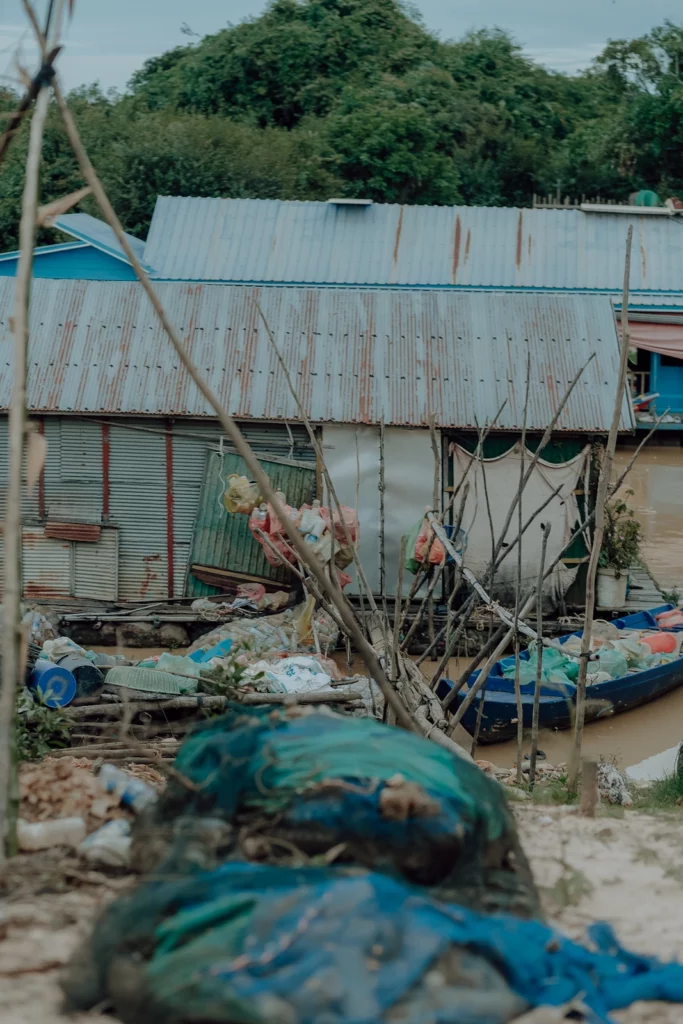
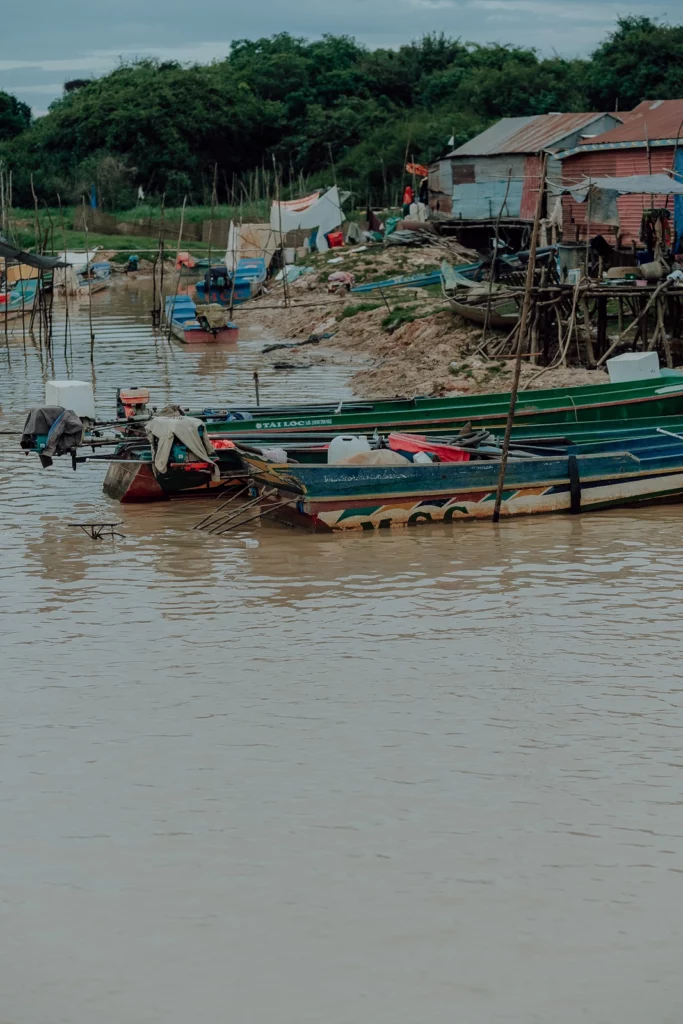
Poverty often leads to a cascade of additional problems, and difficult living conditions can, in turn, exacerbate poverty.
Take access to clean drinking water, for example. In this Floating Village, there is no tap water. While bottled water is available for purchase, the poorest families simply cannot afford enough of it to meet their needs. As a result, they rely on surface water from the lake. During the dry season, this water is heavily contaminated. Families live packed together in their floating houses, and all waste ends up in the already polluted water.
The people are aware of the health risks of using this water, but they feel powerless and without alternatives. They try to use it as little as possible, which often means they either consume too little water or are forced to drink contaminated water. This leads to increased illness, which inevitably deepens poverty and creates a chain reaction of vulnerabilities.
So berichtete uns beispielsweise ein Vater im letzten Jahr: “Ich kann meine Tochter nicht mehr zur Schule schicken. Auf dem Weg dahin ist sie schon mehrmals ohnmächtig geworden. Wir haben nicht genug sauberes Wasser zum Trinken.“
This example shows how quickly one hardship leads to another, increasing the risk of human trafficking and exploitation.
SEREY aims to break this cycle, helping communities rebuild safe and healthy living conditions and providing a foundation that can protect people from exploitation and modern slavery.
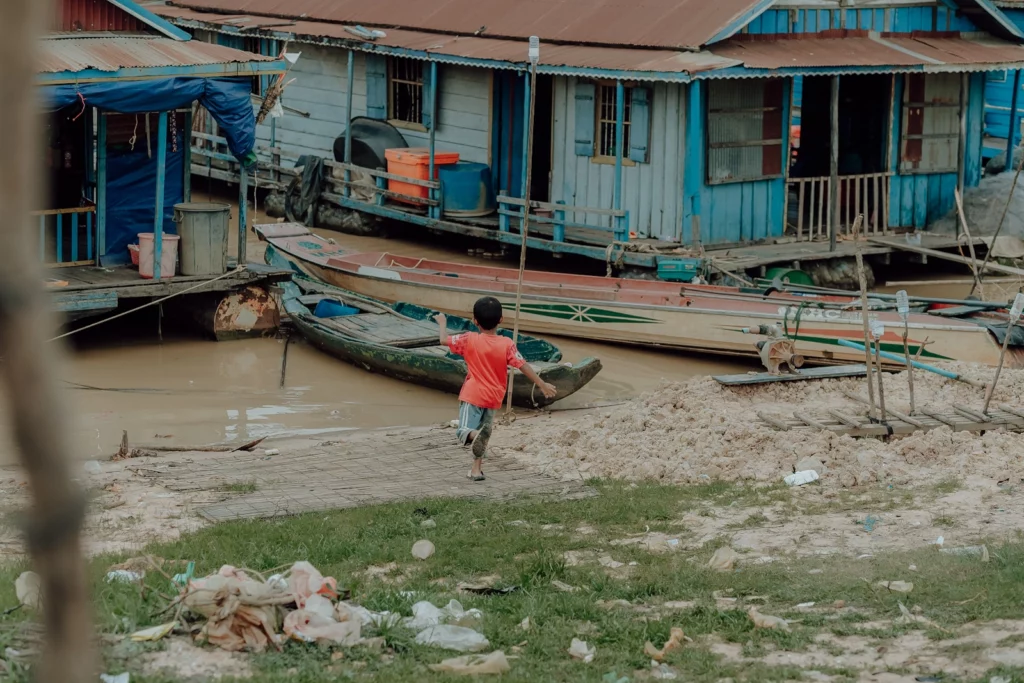
For this reason, last year we already shared our plans to focus specifically on water supply and family support in this village.
There are many different options for providing clean water, but not every solution works for every location.
In the area, we’ve seen wells that were quickly constructed but are now contaminated and falling apart. There is a distant water treatment facility, but without transportation, it is difficult for many families to access. The water level in the lake fluctuates by up to 9 meters between the rainy and dry seasons, rendering some wells unusable. Water filters require regular cleaning, which in turn requires access to relatively clean water in the first place.
For example, we were initially convinced that biosand filters could be a good solution. However, we quickly realized that they are unsuitable for this village’s muddy, dirty water. The filters need occasional cleaning with clear water to maintain their effectiveness and safety—but during the dry season, villagers simply don’t have access to even moderately clean water.
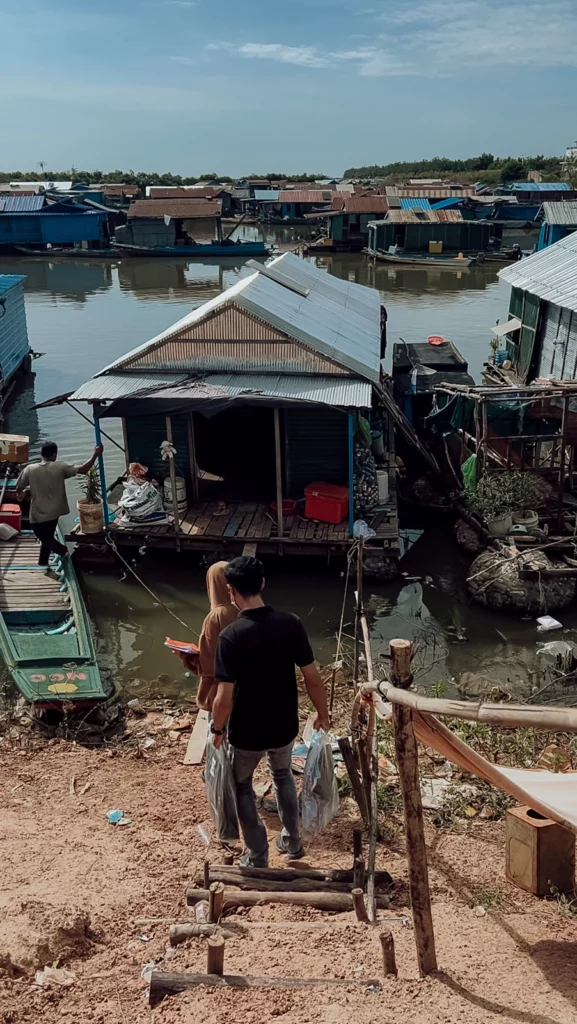
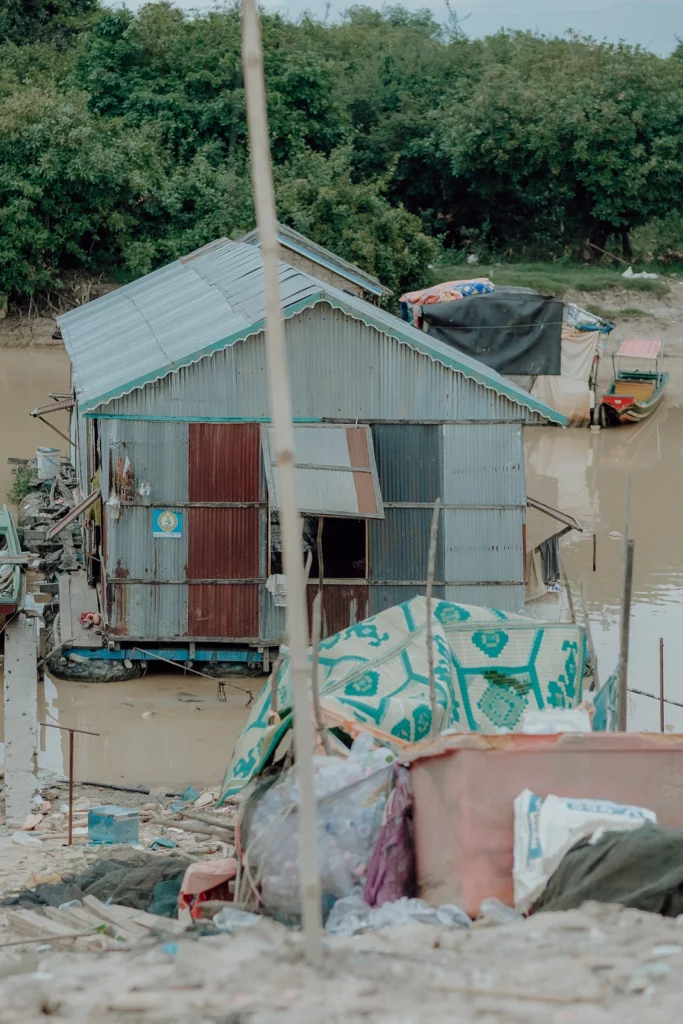
After many discussions with the village chief and the local community, we have now agreed on a new plan for deep well drilling. These wells will be accessible to multiple households during the dry season and can be safely covered during the floods. The residents take responsibility for maintaining the wells in good condition, and our team regularly visits them to provide guidance on proper use and relevant topics.
We are also providing more intensive support to 30 families. Their children receive the necessary school supplies to ensure they can attend school, while we simultaneously work with the families to help them become more self-sufficient and able to provide for themselves.
We aim for sustainable change in as many areas as possible. This requires a great deal of patience in working closely with families and local authorities.
But this effort is worth it, because the impact of this work can truly be life-changing for the people here!
We were only able to start building these wells now because the water level needed to drop first. But the first two wells have finally been installed and will soon provide clean water for 30 families! If all goes well and our finances allow, we plan to install even more wells. Similar needs exist in other villages, so there is still much work for all of us to do!
Thanks to your generous donations, we are able to carry out this work, helping families improve their living conditions and reduce their risk of exploitation.
From the bottom of our hearts, we also want to thank everyone who contributed through the WirWunder campaign on Betterplace! Your support allows us to provide more school supply packages and protect children from exploitation through education.
We are deeply grateful to every one of you who supports us—whether through prayer, spreading the word, or financial contributions. You are part of our mission against human trafficking and exploitation here in Cambodia.
With warm regards and God’s blessings,
The SEREY Team
